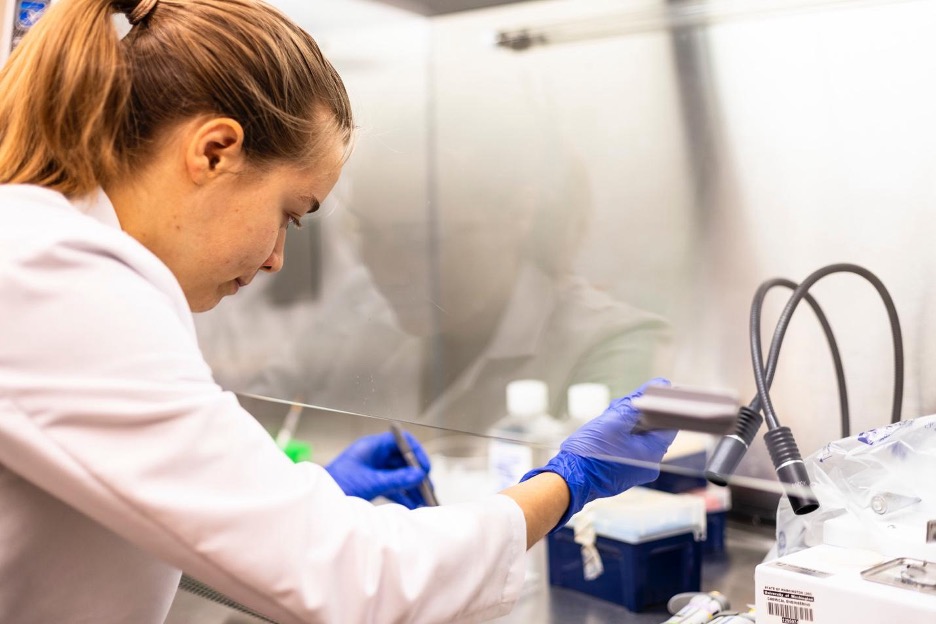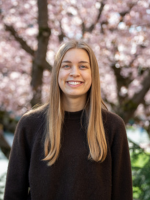By Ro Stastny
July 25, 2025
Sofia Dahlgren, a ChemE undergraduate student and member of the Nance lab, has received multiple awards supporting her ongoing innovative research in developing therapeutics to manage and treat amyotrophic lateral sclerosis (ALS), a devastating and fatal neurodegenerative disease.

Sofia Dahlgren working in the Nance lab. Photo by Dennis Wise.
Dahlgren joined the Nance Lab in January of 2023 as a first-year student. Her early responsibilities involved nanoparticle collection and characterization, and learning multiple techniques for nanoparticle formulations as they relate to therapeutic drug delivery into an injured brain’s cells. In mastering these initial processes, Dahlgren proceeded to focus on optimizing those formulation methods and drug encapsulation studies with N-acetyl cysteine (NAC). NAC is a potent anti-inflammatory agent with the potential to target specific brain cells and mitigate ongoing damage after an acute brain injury in a newborn. Her research in this area was funded by the Mary Gates Research Scholarship in 2024.
Now, Dahlgren is engineering drug-loaded, brain cell-targeting nanoparticles for the treatment of ALS, commonly known as Lou Gehrig’s disease. ALS currently has no cure, and few options are available to control the progression of the disease or its symptoms. In her research so far, Dahlgren has innovated a nanoparticle formulation method to encapsulate a promising anti-inflammatory drug capable of being delivered to critical disease mediating cells in the brain, laying a strong foundation for the project’s success. Dahlgren’s formulation work is part of an international collaboration with senior research fellow John Lee at the University of Queensland, who has clinically relevant animal models of ALS for treatment testing.
Though this project is at the level of a master’s student thesis, Dahlgren has only just completed her third year of her undergraduate degree in chemical engineering.
“She built strong foundational skills in formulating nano-based drug delivery systems that she previously applied to a variety of drugs of interest for neonatal brain injury treatment, an area of focus in our lab,” said chemical engineering professor Elizabeth Nance, “Her technical acumen and experimental rigor primed her to lead this new area of research for our team in adapting her nano-based formulation expertise to focus on ALS.”

Dahlgren has received multiple prestigious honors this year recognizing her innovative success in developing nano-based therapies for this unique neurological disease treatment, including being named a 2025 Goldwater Scholar and a 2025 Astronaut Scholarship Foundation (ASF) Scholar.